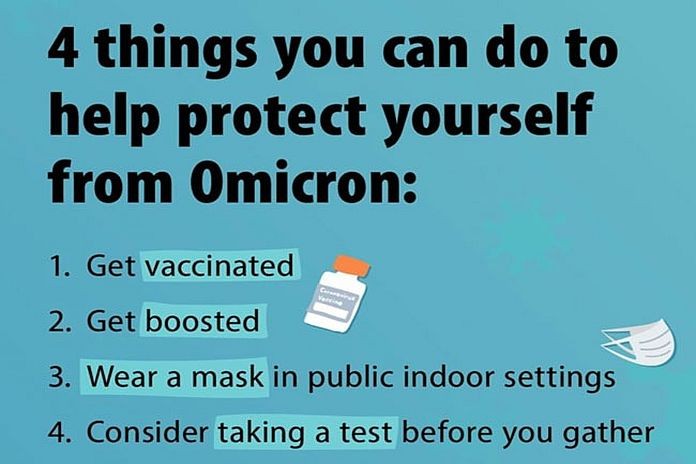ATLANTA, USA, (CDC) – Centers for Disease Control and Prevention (CDC) has been collaborating with global public health and industry partners to learn about Omicron.
The Omicron variant spreads more easily than the original virus that causes COVID-19 and the Delta variant. CDC expects that anyone with Omicron infection can spread the virus to others, even if they are vaccinated or don’t have symptoms.
Omicron infection generally causes less severe disease than infection with prior variants. Preliminary data suggest that Omicron may cause more mild disease, although some people may still have severe disease, need hospitalization, and could die from the infection with this variant.
COVID-19 vaccines remain the best public health measure to protect people from COVID-19 and reduce the likelihood of new variants emerging. This includes primary series, booster shots and additional doses for those who need them.
Scientists are working to determine how well existing treatments for COVID-19 work. Some, but not all, monoclonal antibody treatments remain effective against Omicron. Public health agencies work with healthcare providers to ensure that effective treatments are used appropriately to treat patients.
COVID-19 vaccine booster shots
As of February 2, 2022, more than 88 million people across the United States have received a COVID-19 booster dose. However, 50% of people eligible for a booster dose have yet to get theirs.
Everyone ages 5 years and older is eligible for a free COVID-19 vaccine, and everyone ages 12 years and older is eligible for a free COVID-19 booster shot. Get up to date on your COVID-19 vaccination today to help protect you and those you love.
If you need help scheduling your booster shot, contact the location that set up your previous appointment. If you need to get your booster shot in a location different from where you received your previous shot, there are several ways you can find a vaccine provider.





